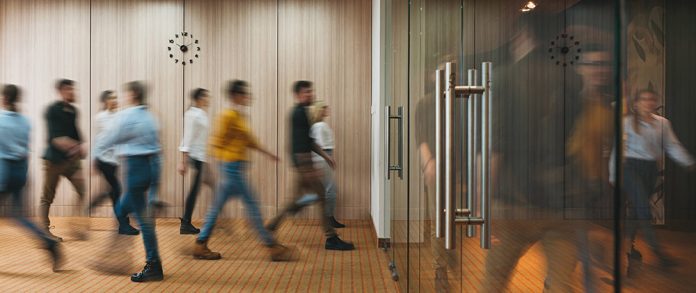Today’s workplace is in a state of flux. Whilst digital transformation has fundamentally changed how people work, most office layouts are still based on an outmoded model in which rows of desks in open-plan spaces for workers sit alongside private offices for senior staff. At Nespresso Professional, however, we are convinced that a dramatic transformation is underway.
According to the Workplace Futures report we conducted with The Future Laboratory, by 2030 we will see the creation of hyper-flexible, human-centric spaces to inspire productivity from a workforce with radically different expectations. This implies a fundamental shift not only in how offices look, but –more importantly- in the purpose they serve with a space for focused work but also areas to have coffee breaks, while it continues to be the social glue within workplaces.
The experts we spoke to for Workplace Futures predict that future offices will adapt to their inhabitants to become Sentient Spaces which serve to optimise performance and encourage conviviality. And, with 85% of British adults experiencing stress regularly, there can be no doubt that addressing burnout will be a key driver for companies. This is likely to result in increased integration of trends such as Biophilic Design, which mimics ‘nature’ in the workplace to reduce stress.
We can also expect to see the gradual adoption of new, holistic approaches, such as Slo-working – a deliberate deceleration of the pace of work to discourage burnout. Trends like this will further cement the importance of social spaces and pause points in the future workplace, providing employees with areas to slow down, switch off, or catch up with colleagues over a coffee. In a report by Nespresso/Comres in 2017, 82% of people surveyed said they felt coffee breaks at work help them to relieve stress.
Beyond addressing well-being, our findings indicate that workspaces of 2030 will become hyper-flexible hubs of collaboration, contemplation and community. Hospitality-inspired offices will satisfy workers’ expectations of convenience as well as their desire to feel part of a community, while new ‘Lo-co Workspaces’ will provide a more flexible and convenient evolution of today’s co-working spaces.
The report also predicts that workspaces will increasingly shape the community around them, stepping in to serve and support others. Redundant retail spaces will be transformed into co-working hubs to reinvigorate local communities, creating the ‘Work Mall’ – a hub offering meeting, exhibition and co-working spaces for the wider community. Meanwhile, offices will begin catering for whole communities to become what we’ve termed a Civic Hub, providing people with spaces to work, learn and come together socially.
These findings highlight a huge responsibility on the shoulders of employers – to create workspaces that are both kind and sustainable, as well as highly productive. By embracing this responsibility, however, we have a generational opportunity to create workspaces with the power to improve society – by facilitating the needs of workers, at the same time as giving back to the communities that surround them.






